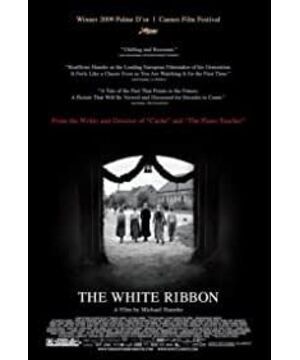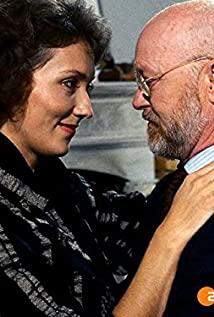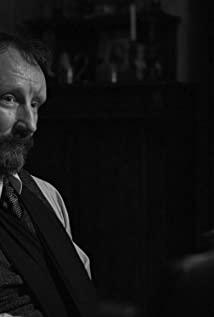Haneke's film style has always been gloomy and violent, and the storyline is flat and full of tension, which is not unexpected but always raises people's emotions. The background of the story is on the eve of World War I, a teacher in northern Germany tells his memories of a village full of strange things.
A doctor falls from a horse, a tenant farmer's wife dies unexpectedly, a farm catches fire, and young children are severely beaten.
Haneke depicts the cruel, indifferent and terrifying devil hidden deep in the hearts of children in a very serious way. The real initiators are those respectable children. With a shudder, when the movie sees the end, I can think of why World War II broke out. The end of World War I laid the groundwork for World War II. Why the Nazis were so brutal, I got a little answer vaguely from here.
In the film, the male owner of each family almost plays a very severe role. In addition to beating and scolding children, it is indifferent sexual violence. The helplessness and despair of the child, the psychological changes are becoming more and more elusive, becoming terrifying, contrary to the behavior of ordinary children, and finally becoming abnormal.
Aren't the adults in World War II the same as they were when they were young in World War I? The outbreak of World War I may have caused the world to be in turmoil, but what about the occurrence of World War II?
It is not when people do evil that the devil slips into their hearts. In fact, the devil has always been inside, but it only slips out from time to time.
View more about The White Ribbon reviews










